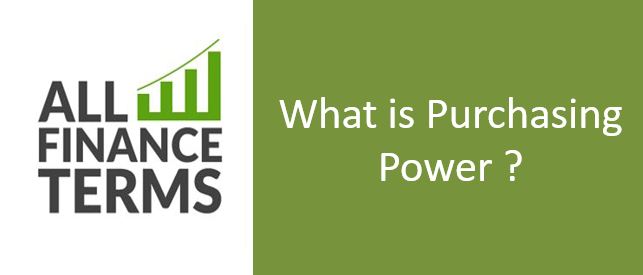Definition of Purchasing Power
Purchasing Power is the value of a currency indicated in the number of solutions or products that one unit of money can purchase.
Brief Explanation of Purchasing Power
It is significant because, all else being equal, rising prices reduces the number of solutions or products you would be able to purchase. In investment conditions, it is the money of credit score available to a customer to buy additional investments against the existing minor investments in the broker account. To measure Purchasing Power, you would compare against a cost catalog such as the Consumer Price Index. An easy way to think about Purchasing Power is to imagine if you made the same wage as your grandpa. Today you would need a much greater wage just to maintain the same quality of just residing. Similarly, a home buyer looking homes in the $300,000 to 350,000 budget range had more options to consider ten years ago. It affects every aspect of financial aspects, from consumers buying products, to investors and stock values, to a country’s financial success. When a currency’s Purchasing Power reduces due to excessive rising prices, serious negative financial repercussions occur, including rising costs of products or solutions contributing to higher residing costs, as well as high-interest rates that affect the global market, and falling credit score scoring as a result. All of these factors can play a role in a financial crisis.


